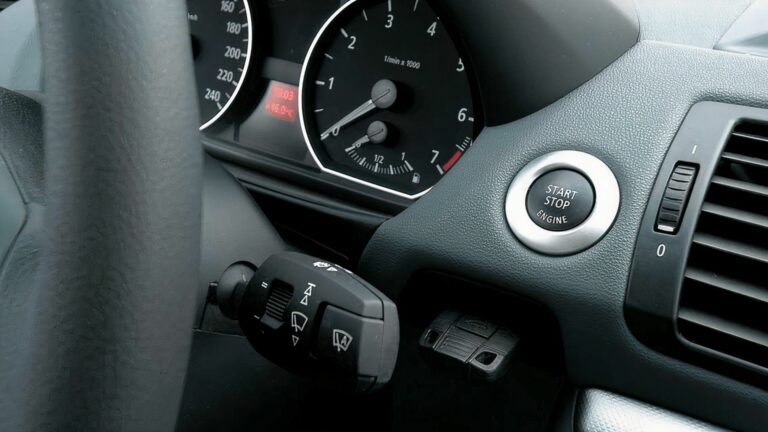Fuel Efficiency: A Race for the Best Engine
For years, car manufacturers have been locked in an ongoing battle to develop the world’s best engines. A primary focus of this competition is fuel efficiency – the ability to achieve superior miles per gallon (MPG). This quest has spurred innovation, with automakers developing exciting new technologies designed to squeeze every possible mile out of a gallon of gas.
From clever transmissions to engine control unit (ECU) reprogramming and electrical assistance, here’s a look at how modern engine technologies are changing the fuel economy of everyday cars.
Stop-Start Technology
One of the most obvious fuel wasters is an idling engine, especially at traffic lights. While stopped, fuel is being consumed without moving the vehicle, negatively impacting the MPG.

This is why stop-start technology is common in most new cars today. The system automatically shuts off the engine when the car is at a standstill and restarts it when the driver lifts their foot from the brake or depresses the clutch (for manual transmissions).
According to the RAC, this technology improves fuel economy by approximately 5% to 7%.
Cylinder Deactivation
Cylinder deactivation is a technology that’s been around for a while. The core concept involves shutting off some of the engine’s cylinders during cruising to reduce fuel consumption.
Ford claims this can boost fuel economy by up to 6% in their EcoBoost engines.
Mild-Hybrid Powertrains
Mild-hybrid systems, used by automakers such as BMW, Audi, and Dodge, incorporate an electric motor to enhance the efficiency of the combustion engine, especially at lower speeds. These systems use a 48-volt hybrid system, although some operate at 12 or 36 volts. The electric motor supplements the engine, reducing strain and improving overall fuel economy.
Unlike full hybrids, mild-hybrid systems don’t offer gas-free driving capabilities because the motor and battery are not sized for that purpose.
Turbochargers
Turbochargers have significantly changed the automotive world over the past 50 years. Today, even high-performance models are incorporating turbochargers to improve fuel economy, while still providing the power that customers expect.

Turbochargers can help smaller engines improve fuel economy by as much as 20% to 40% compared to their naturally aspirated counterparts.
Here’s a comparison of the BMW models to show these changes in horsepower and efficiency:
Continuously Variable Transmissions (CVTs)
CVTs, often found in cars like Subaru, use two pulleys connected by a belt. As the car’s speed changes, the pulleys adjust, providing a continuously variable gear ratio. This allows the engine to operate at its most efficient speed, enhancing fuel economy.

Direct Fuel Injection
Direct fuel injection sprays gasoline directly into the combustion chamber. According to Bosch, a leading fuel-system expert, this technology can improve fuel economy by up to 15%.

Although effective, some direct-injection engines can experience carbon buildup over time, which contributes to lower performance over the long term.
Variable Valve Timing (VVT)
Variable valve timing (VVT) systems change the timing of an engine’s valves, adapting to different driving conditions. By optimizing valve timing, VVT improves both performance and fuel efficiency.
When Toyota implemented this technology in the late 1990s, it achieved fuel savings of around 6%,
8-, 9-, and 10-Speed Automatic Transmissions
Traditional automatic transmissions have a set number of gears. By adding more gears, manufacturers provide a wider range of gear ratios, allowing the engine to operate more efficiently. This means more precise gear selection when accelerating or cruising, reducing engine stress and improving fuel economy. Modern examples of these transmissions can be found in models like the 2024 Honda Pilot.
Dual-Clutch Transmissions (DCTs)
Initially developed for motorsports, dual-clutch transmissions (DCTs) have become popular for daily use because they offer improved fuel economy compared to older automatic transmissions. DCTs can change gears in milliseconds, which also appeals to driving enthusiasts.

Automatic transmission specialists suggest that DCT designs improve fuel efficiency by around 6% on average.
ECU Remapping Software
Changing the settings on your ECU can dramatically improve fuel economy. This process involves adjusting the amount of air and fuel delivered to the engine. According to ProTune, fuel economy figures can be improved by up to 20%. However, it is worth noting that these remaps can also reduce fuel economy, depending on the desired result.

Sources: Ford, RAC, Garrett Motion, Consumer Reports, J.D. Power, AutoTransRUs



